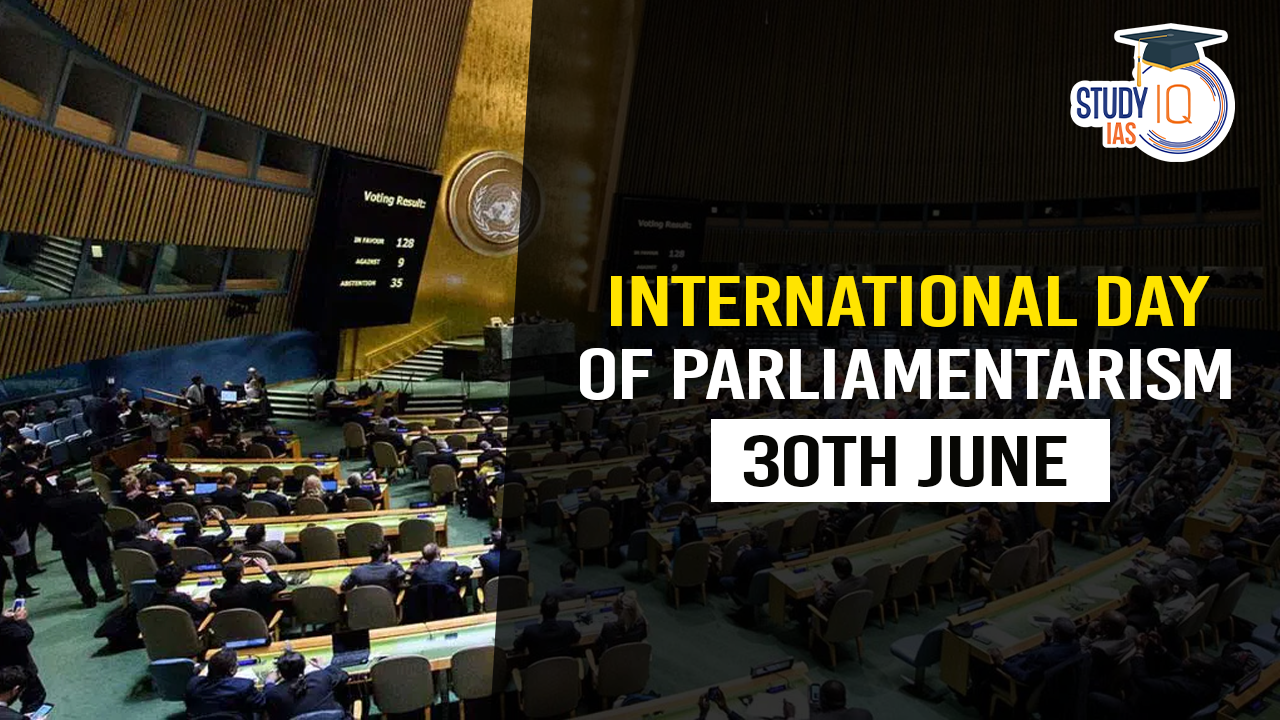Table of Contents
The International Day of Parliamentarism, observed annually on June 30th, is a celebration of parliamentary institutions worldwide. This day underscores the pivotal role that parliaments play in democratic governance, legislative integrity, and the representation of the people’s voice in policy-making. It also provides an opportunity to reflect on the progress, challenges, and future of parliamentary democracy globally.
International day of Parliamentarism 2024
As we commemorate the International Day of Parliamentarism on June 30, 2024, we recognize the vital role that parliaments play in fostering democracy, human rights, and the rule of law around the world. This day marks the anniversary of the Inter-Parliamentary Union (IPU), established in 1889 to promote international cooperation and resolve conflicts through dialogue.
| Category | Description |
|---|---|
| Date | June 30, 2024 |
| Commemorates | Anniversary of the Inter-Parliamentary Union (IPU) |
| Purpose | Celebrates the importance of parliamentarism in democratic governance |
| Key themes | Democracy, Human Rights, Rule of Law, Climate Action |
| Organizations involved | Inter-Parliamentary Union (IPU), Parliamentarians for Global Action |
| Goals | Strengthen parliamentary democracy, promote human rights, uphold the rule of law, address climate change |
| Importance | Recognizes the crucial role of parliaments in shaping policy, ensuring accountability, and representing diverse perspectives |
International day of Parliamentarism 2024 Theme
The theme of International Day of Parliamentarism 2024 is parliamentary diplomacy, building bridges for peace and understanding. This theme underscores the essential role of parliaments in fostering democracy, ensuring transparency, and promoting sustainable development globally.
Historical Background of International Day of Parliamentarism
The United Nations General Assembly designated June 30th as the International Day of Parliamentarism in 2018, commemorating the founding of the Inter-Parliamentary Union (IPU) on this day in 1889. The IPU, the global organization of national parliaments, works to promote democratic governance, accountability, and cooperation among parliaments. Its establishment marked a significant step towards fostering international dialogue and understanding through parliamentary diplomacy.
Significance of Parliaments
Parliaments are the cornerstone of democratic systems, serving multiple critical functions:
- Legislation: Parliaments are responsible for drafting, debating, and enacting laws that reflect the will and needs of the populace. This legislative function ensures that a nation’s legal framework evolves to meet emerging challenges and societal changes.
- Representation: Elected representatives in parliaments embody the diversity of their constituencies, giving voice to different perspectives and interests. This representative role is crucial for inclusive governance and social equity.
- Oversight: Parliaments hold the executive branch accountable, ensuring transparency and preventing abuse of power. Through committees, inquiries, and debates, they scrutinize government actions and policies.
- Budget Approval: Parliaments play a vital role in approving national budgets, thereby influencing economic policies and the allocation of resources. This function is essential for fiscal responsibility and effective public spending.
Challenges Facing Parliaments
Despite their importance, parliaments around the world face several challenges:
- Political Polarization: Increasing political polarization can hinder the legislative process, leading to gridlock and ineffective governance.
- Corruption and Lack of Transparency: Corruption within parliaments can undermine public trust and the legitimacy of democratic institutions.
- Limited Inclusivity: Many parliaments struggle with ensuring gender equality and the representation of marginalized groups, which can weaken the inclusiveness of democratic processes.
- Erosion of Parliamentary Powers: In some regions, the executive branch’s dominance can erode the powers and independence of parliaments, threatening the balance of power.
Global Efforts and Future Prospects
The International Day of Parliamentarism highlights the need for ongoing efforts to strengthen parliamentary institutions. Key initiatives include:
- Capacity Building: Providing training and resources to parliamentarians to enhance their legislative and oversight capabilities.
- Promoting Inclusivity: Encouraging the participation of women, youth, and marginalized communities in parliamentary processes.
- Fostering Transparency: Implementing measures to combat corruption and promote transparency in parliamentary activities.
- International Cooperation: Enhancing cooperation among parliaments through forums like the IPU to address global challenges collectively.
Key Takeaways
-
The International Day of Parliamentarism is celebrated on June 30, the anniversary of the Inter-Parliamentary Union’s founding in 1889.
-
Parliamentarism is the cornerstone of democratic governance, providing a platform for representatives of the people to shape policy.
-
The Inter-Parliamentary Union (IPU) promotes parliamentary diplomacy, advocating for peace, human rights, and the rule of law.
-
Parliamentarians must lead by example in addressing the climate crisis, adopting greener policies and embracing sustainability.
-
Strong, transparent, and representative parliaments are essential for democracy to thrive.


 Indus Water Treaty 1960 Suspended by Ind...
Indus Water Treaty 1960 Suspended by Ind...
 5 Years of SVAMITVA Scheme and Its Benef...
5 Years of SVAMITVA Scheme and Its Benef...
 Places in News for UPSC 2025 for Prelims...
Places in News for UPSC 2025 for Prelims...





















